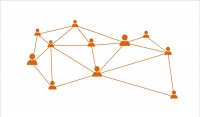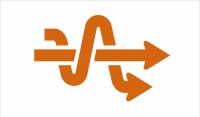Rise of Economic Complexity
The standard linear systems framework to economics was developed during the Industrial Age and has enabled a transformation to the domain of economics from being a part of philosophy to becoming a much more powerful framework that could support the huge economic transformation that was the industrial revolution. It has in many ways been very successful doing this, but today a number of major trends are having a fundamental transformative effect on our economies as we transit further into the 21st century. In this paper, we will be talking about some of these major trends that are reshaping our global economy both on the macro-level and the micro-level, both in the real economy and on the institutional level. These trends are taking us into a world of heightened connectivity, interdependence, in short, into a world of complexity. A world that in many ways goes beyond our traditional Industrial Age paradigm.
What we will be trying to give an overview to in this paper is the macro scale transition of advanced economies as they are currently going from an Industrial Age form to a post-industrial form. We use this very open term ‘post-industrial’ because it is not totally clear what will be the defining factor to this next generation economy, but we can identify a number of major factors that are becoming more apparent. The term post-industrial is in many ways a synonym for a services economy, and with the huge rise in services over the past few decades advanced economies are already fundamentally service economies. Services are very different from Industrial Age products and this has major implications that we will be discussing.
Given the profound effect that the information revolution is having on our economies as they become driven by information and knowledge, we will look at some of the implications of this for economics. Globalization is another very important transformation. Our economy of the 21st century is increasingly globally interconnected, we will discuss this also. Lastly, we will talk about the rise of sustainability as it is becoming an ever more important factor in building this next generation of sustainable, globally integrated economy based on services, information and knowledge. This is obviously a lot to cover in this short paper so we will just get to touch on some of the most salient factors to illustrate how they are leading to an ongoing transformation in the structural complexity of our global economy.










